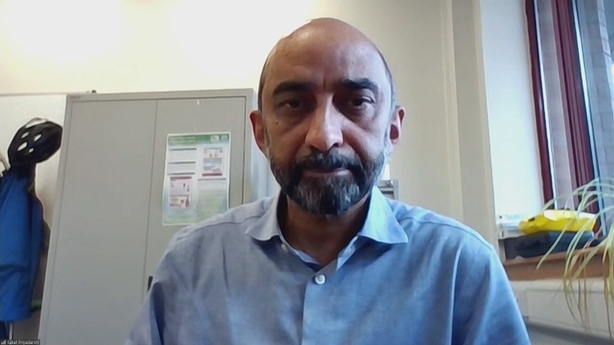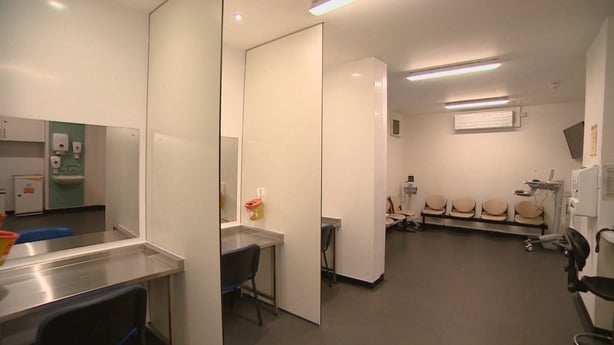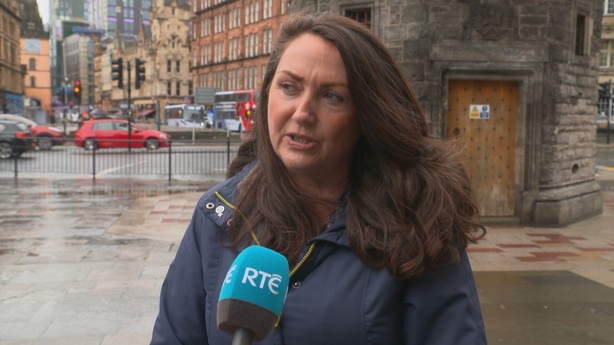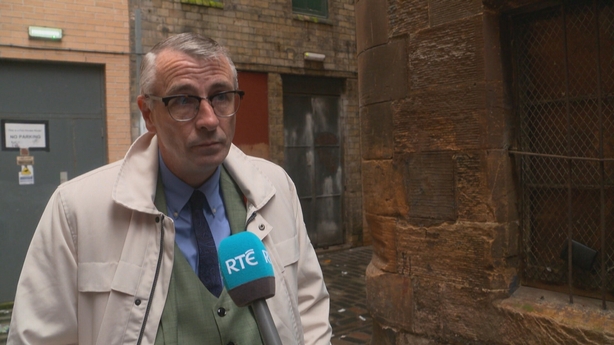Glasgow is planning to have the UK's first drug consumption room up and running in the new year.
It is a similar model to the one planned for Dublin where drug users bring their own drugs for injection in a safer environment.
Scotland is an outlier when it comes to drug abuse.
It has 248 drug deaths per million people which is by far the highest in Europe and compares with 88 per million in the UK as a whole and 73 per million in Ireland.
However, the Glasgow plan has raised concerns from some, including the drug treatment group Faces And Voices Of Recovery (FAVOR) who would like to see more funding to help people get off drugs.
There is also criticism from others that the plan does not go far enough and that the new facility is too far away from the city centre where most drug users currently congregate.

Dr Saket Priyadarshi will be developing the facility at a health centre on Hunter Street near the East End of Glasgow.
He said there is "huge" international evidence based on 100 of similar sites in many cities around the world they can help they can help reduce drug related deaths and help link people into wider treatment.
There is already a facility in Hunter Street where people with long standing addiction issues can inject a heroin substitute as part of a programme.
Dr Priyadarshi said he believes the new injection centre will be close enough to the city centre to attract users but he does believe it will be in a "discreet" location.
He said: "In terms of some of the concerns around the visibility of people using the site etc we think it has some advantages rather than placed right in the heart of the shopping centre in the city centre for example."

One point that critics of the plan make is that the number of people who die injecting drugs in a public place is quite low.
Although Scotland does not have specific figures it is known from a 2017 report from the Health Research Board in Ireland that the total number who died that year from public injection was about five across the whole country.
Dr Priyadarshi admits the actual numbers of such deaths are low in Glasgow too but he said that some of those who inject on the street later overdose in their accommodation and he would like to encourage them to use the facility.
He said the consumption room will also help reduce blood borne virus transmission.

However, Annemarie Ward, founder of FAVOR and who has recovered from addiction herself, said there should be more emphasis on abstinence and rehabilitation.
Although she does not object to the new injection facility, she pointed out it will cost £2.3 million (€2.6 million) a year while the existing heroin substitute programme costs £1.3 million (€1.4million) a year and the provision of clean needles costing another £1.3 million annually.
In contrast, she pointed out that there are only 23 rehabilitation beds in Glasgow and claimed the current harm reduction policy is "a form of palliative care".
She said: "We're not helping people to get freedom from that dependency by offering them services that can help them do that, to detox and to go to rehab and to get into recovery."
She added that it is sending a message to children and society in general that there are safe ways to use drugs.
Drug users on the streets of Glasgow welcomed the new facility saying that it would be safer.

One said, however, that there needed to be a lot more.
Another said he would not be leaving his home to travel to the centre to inject drugs.
Peter Krykant, who also is a former drugs user, ran an unofficial injection facility in the past and works with the Cranstoun social help group.
He said that for the past 50 years people have been told drugs are bad and to stop using drugs but other types of drugs like alcohol are encouraged.
Mr Krykant said: "If we continue down the same path of prohibition and trying to create a drug free utopian world we're going to get the same results as we've got now for the last few decades."
He would like to see drugs regulated.
Meanwhile, the new injection facility is due to open in Glasgow next summer.







